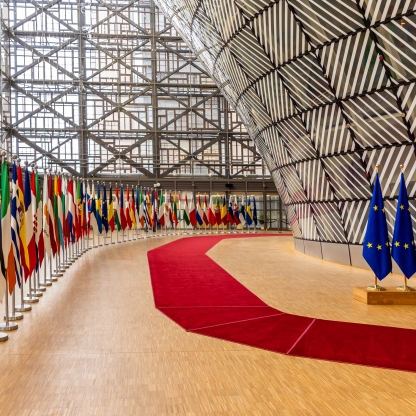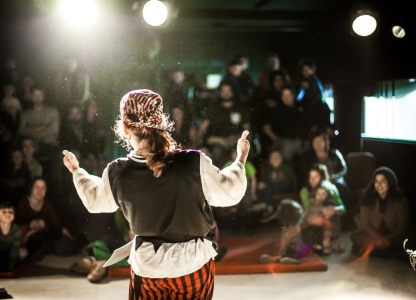The Belgian presidency of the Council of the EU
From January 1 to June 30, 2024, Belgium held the presidency of the Council of the European Union. This presented a unique opportunity for the Flemish Department of Culture, Youth, and Media, as Flanders presided over both the Youth Affairs Council and the Culture Council.

What is the Council of the EU?
The Council of the European Union plays an essential role in EU decision-making. Here, EU legislation is negotiated and adopted, usually in conjunction with the European Parliament. Moreover, the Council coordinates EU policies, develops the foreign and security policies of the EU, conducts negotiations with other countries and international organisations, and approves the annual EU budget in conjunction with the European Parliament.
The Council consists of the ministers from the 27 European Union member states. Which ministers attend the Council depends on their respective portfolios. The member states take turns holding the presidency, each for a six-month term. This means that each member state assumes the presidency once every 13.5 years, with Belgium's previous presidency in 2010. The presiding member state leads meetings at various levels and acts as a neutral mediator to facilitate consensus.
The presidency of the Council ensures:
- Continuity of the EU agenda
- The negotiation, agreement and adoption of EU laws
- Cooperation among member states
- Cooperation and coordination with other EU institutions
To maintain continuity, the three member states consecutively holding the presidency work closely together in collaborative arrangements known as trios. The Belgian presidency took place in the middle of the trio presidency with Spain (second half of 2023) and Hungary (second half of 2024).
The Belgian Presidency for Culture, Youth, and Media
Belgium's representation in the Council is regulated by the Cooperation Agreement of March 8, 1994, between the federal government, the regions, and the communities. According to the 'in foro interno, in foro externo' principle, the Belgian regions are responsible for the international aspects of their competences, including EU policy.
Through a rotational system, it is agreed on which competences Flanders will take on the spokesperson or presidency role in the Council. Ministers in the presidency role lead the Council sessions. They assume this role as a neutral mediator and not as a representative of an EU member state. On the other hand, ministers acting as spokespersons during the Council do speak on behalf of Belgium as a member state.
According to this rotation system, Flanders was responsible for five policy areas during the Belgian presidency in 2024, including culture, youth, and media. Consequently, the Councils of these areas were chaired by Flemish ministers.
The Culture Council and the Youth Affairs Council
The policy areas of culture, youth, and media are addressed within the EYCS Council configuration, which is composed of the ministers responsible for education, youth affairs, culture, and sports.
Ministers from the 27 member states convene here to discuss guidelines and regulations that will apply to the entire European Union. Two Councils are of importance to the areas of culture, youth, and media:
- The Council on Culture, was chaired by Minister Jan Jambon. This Council includes both culture and media.
- The Council on Youth Affairs, was chaired by Minister Benjamin Dalle. This Council covers youth.
These Council sessions were prepared by Flemish experts and chaired by a Flemish minister.
The role of our Department during the Presidency
Organising a presidency of the Council of the European Union is a major undertaking and requires careful planning. In the preceding year, many colleagues were actively engaged with both substantive and operational preparations. The themes and proposals discussed during the Council meetings were thoroughly prepared within Council working parties. These are meetings with representatives from the EU Commission and from each member state, chaired by the state holding the presidency.
To highlight policy priorities, the Belgian EU presidency hosted numerous events. This allowed policymakers from the member states and EU institutions, sector professionals, and experts from all over Europe to acquaint themselves with our country's strengths and expertise, gain inspiration, and engage in dialogue with each other.
Cultural additions to the Presidency programme
In addition to the formal activities associated with the EU presidency, it is customary to enrich the Presidency programme with cultural activities. These encompass the historical, cultural, and cultural heritage related traditions that characterise Flanders, as well as its strengths in terms of innovation, technology, and science. As was the case during the Belgian presidency in 2010, our department was responsible for organising the Flemish cultural contributions to the Presidency programme.


